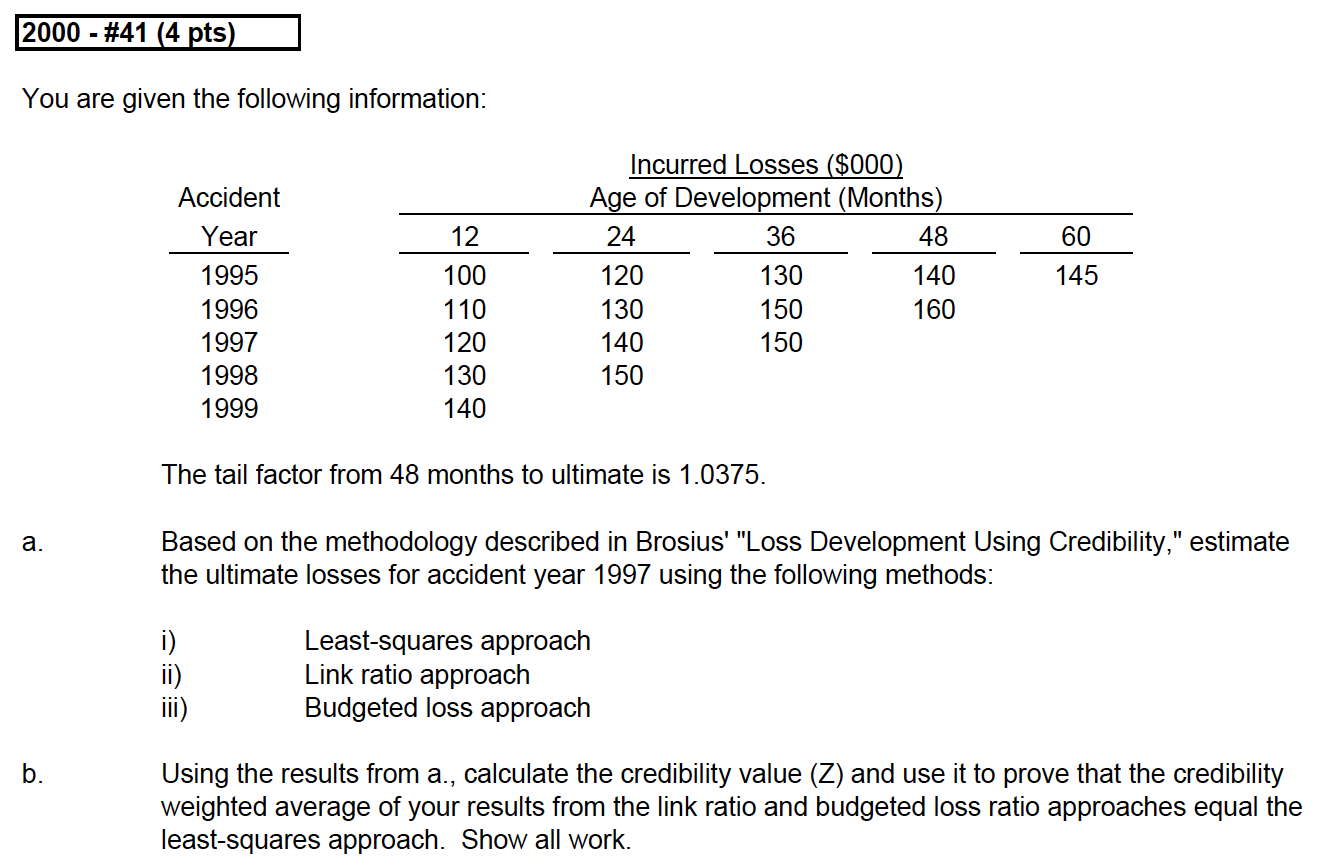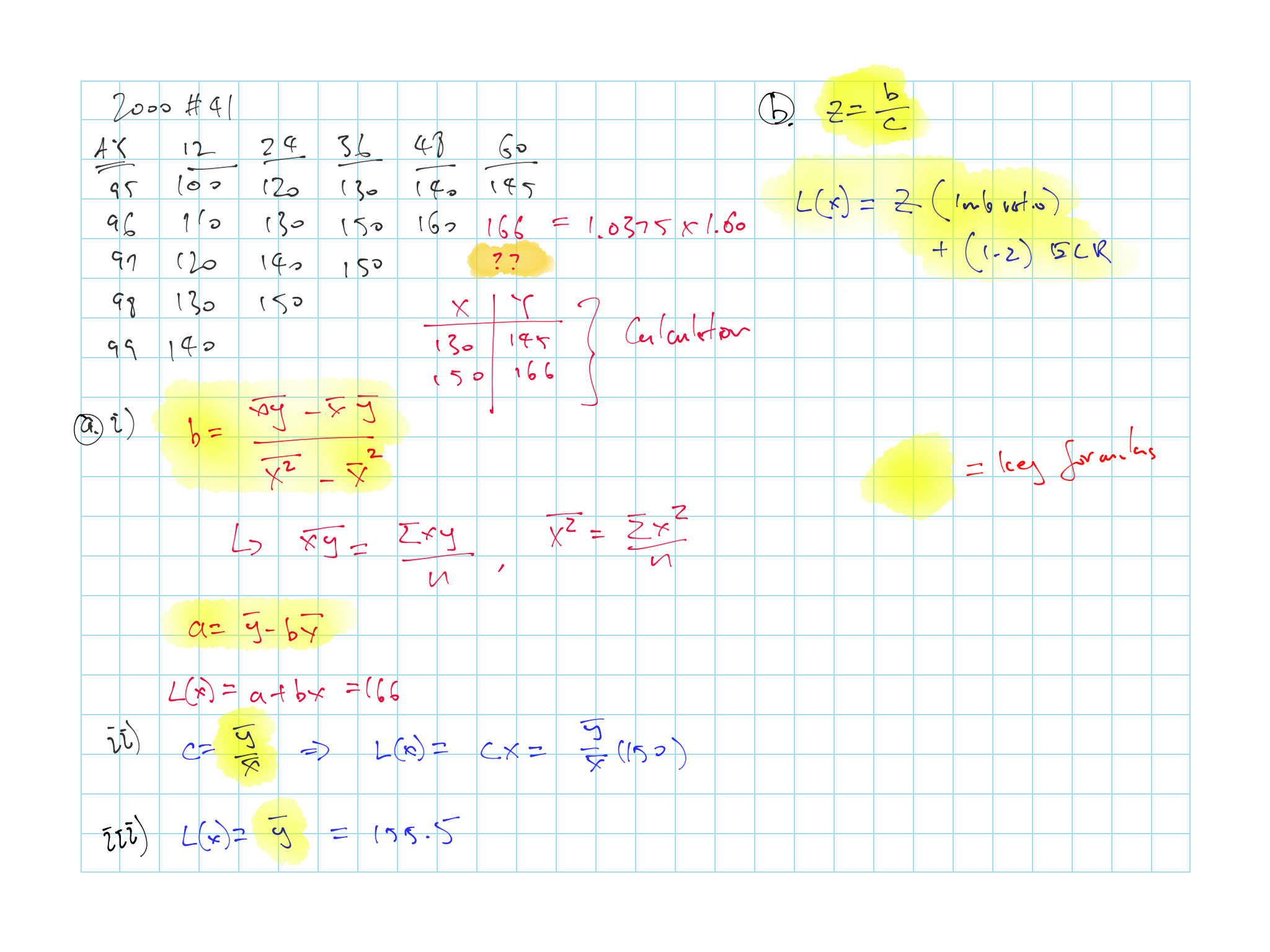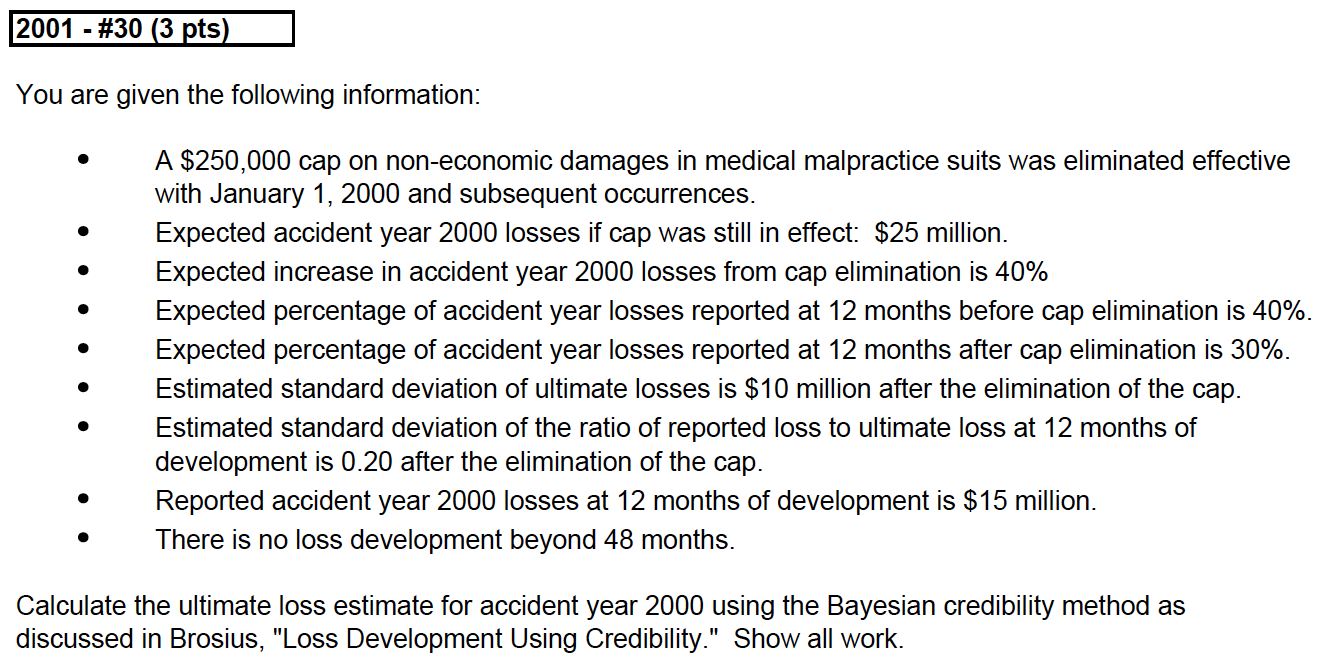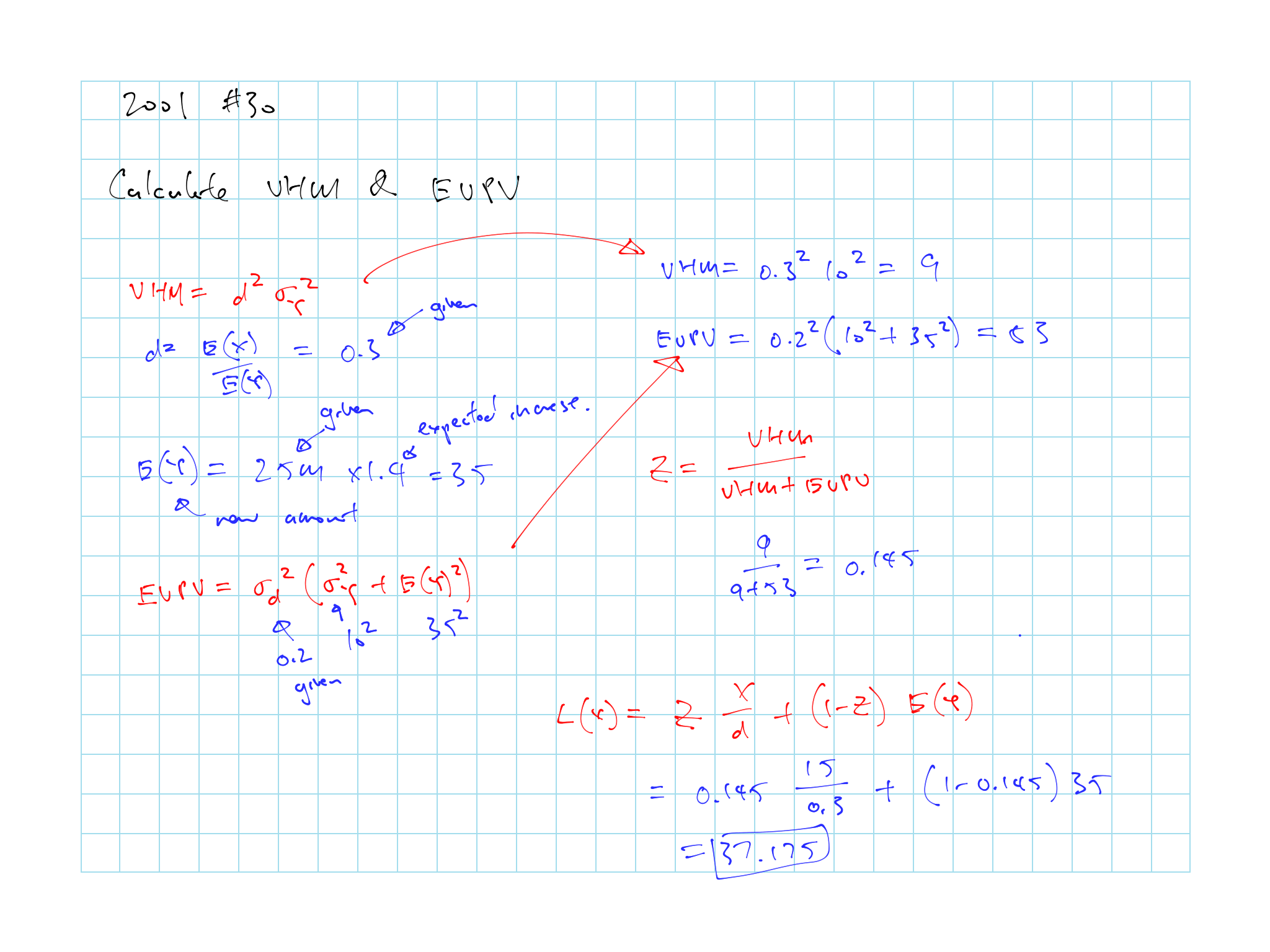1.5 Past Exam Questions
Concepts
1996 - #28: Poi-bin process, \(a\) and \(b\) for methods
1996 - #50: When to use LS
2000 - #2: Method assumptions
2001 - #22: Which method is better given the Cov(X,Y) and Var(X) relationships
2003 - #3: \(a\) and \(b\) for different methods
\(\star\) 2006 - #4: Cov(X,Y) and Var(X) relationships (phrased a bit differently)
2006 - #15 d: LS assumptions
2007 - #42: Method assumptions
2009 - #3 b: LS assumptions (LS not best given \(b < 0\))
2014 #2: Know assumptions of methods for Dev (fitted line and residuals)
Full Calculations
\(\star\) 2000 - #41(fig 1.1): LS, dev and ELR from triangle; Weight the 2 with \(Z = \dfrac{b}{c}\) to get to LS
\(\star\) 2001 - #31(fig 1.2): Use VHM and EVPV for
2002 - #21: LS, dev and ELR from triangle and weight for LS
2008 - #9: LS, dev and ELR from triangle
\(\star\) 2008 - #10a: VHM and EVPV calc
- \(\sigma_y = \sigma_{LR} \times Prem\)
\(\star\) 2011 #1:
LS w/ exposure adjustment
Assess LS parameters resonability
\(\star\) Draw the relationship of losses to date vs ultimate for the 3 methods
2012 ‐ #1 b: Solving equations to back out numbers using BK and BF method\(\star\) 2012 - #4: LS and know that LS gives the optimal linear weight based on \(\dfrac{b}{c}\) between linked ratio method and LR method
2014 #1:
VHM and EVPV
Why LS is not appropriate:
Coverage levels have changes, no guarantee that the payout pattern remains
2016 #2:
LS calculation
LS parameters potential problems
\(VHM\) and \(EVPV\):
Use a priori based on average from historical
Simple Plug and Play
1998 - #19: BF with LS
\(\star\) 2003 - #22: Dev and ELR, key is to adjust for exposure
2005 - #12: LS calc by \(a\) and \(b\)
2006 - #5: LS calc by \(a\) and \(b\)
2006 - #15 a-c: Dev, BF, and cred
2009 - #3 a: LS Calc
2012 ‐ #1 a: Dev, BF, Benktander
1.5.1 Question Highlights

Figure 1.1: 2000 Question 41

Figure 1.1: 2000 Question 41

Figure 1.2: 2001 Question 30

Figure 1.2: 2001 Question 30